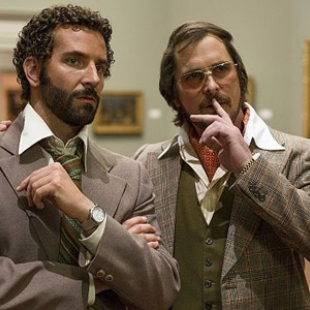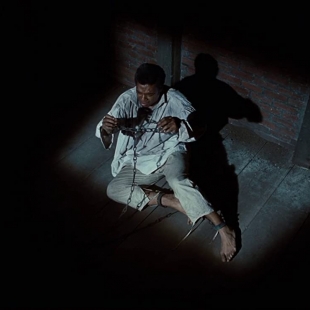Who Gets To Vote for Movie Awards?
It’s awards season, the time of year when Hollywood potentates get sore hands and shoulders from all the back patting. What with Golden Globes, Oscars, Critics’ Choice Awards, People’s Choice Awards, etcetera, etcetera… it all gets to be a bit much. And we haven’t even mentioned “guild” awards, like the ones bestowed by the Screen Actors’ and Writers’ Guilds.
But why should you care? You, a parent reading our website, are likely far more concerned about finding a movie you approve of than some unknown “expert” who has the privilege of filling out a ballot. But movies that win awards make money, and movies that make money (and the stars that act in them) are far more likely to be repeated in sequels or mimicked in other incarnations. Ultimately these awards affect the selection of films you will find in your neighborhood.
According to a 2013 Business Insider article Oscar winning movies over the previous five years had an average production budget of only $17 million yet earned an average of $82.5 million. Over half of the final total was earned after winning the Oscar. Even just a nomination saw an increase of close to 40%. Movies that have made their way to home video by Oscar time also see an increase in revenue. Of course the stars and directors involved in winning projects will see a fatter paycheck as well.
Also you may have been “stung” by previous award winning films that you assumed meant would be worth your time and money. By understanding who is voting and what the process is you may see these “important” movies from a different perspective.
The Oscars
Lets begin with the granddaddy of them all, Mr. Oscar. It all started in 1929 when you could snag a ticket to the event for $5. Now the honor, officially known as the Academy Awards, has become the most prominent trophy in the industry and perhaps ranks with Olympic medals for status. But how are the few chosen?
To vote for the Academy Awards you must be a member of the Academy. Sadly there isn’t a membership list anywhere, which cloaks the process in mystery. But thanks to some diligent investigative reporting by the LA times in 2012, we can learn a little more about the 5,765 members who call themselves academy members. To begin they are 94% Caucasian and 77% male. African-Americans make up only 2% of the voters, Latinos even less. And they are getting up there in age, with the median at 62. Youngsters, those under 50, make up only 14% of the voters.
We do know who some of the voters are. Big names like Meryl Streep, Steven Spielberg and Tom Hanks. But how about Captain Stubing… or… I mean Gavin MacLeod? He is one of many older voters whose careers are somewhat forgotten, but they still have a say. According to the LA times, “... hundreds of academy voters haven’t worked on a movie in decades.” A check on the IMDB reveals Gavin MacLeod hasn’t quite abandoned the good ship Hollywood, but his work is much more TV oriented—an area the Academy has no interest in. Nevertheless once you have qualified for membership you are typically in for life. The trio of LA Times reporters also discovered a bookstore owner and a nun who still hold voting rights.
Voting starts with a nomination process. Nomination ballots are distributed in late December and are due back in January. There are 25 categories that fall into various Academy “branches.” For the most part members in each branch determine the nominations in their respective craft: Cinematographers nominate cinematographers, directors nominate directors, etc. One exception is Best Picture, a category in which all voting members can nominate their favorite film.
The actual voting is more diverse. The entire membership gets to vote on all categories based on the nominated films. An interesting piece of fine print states that in five of the categories (Animated Short Film, Live Action Short Film, Documentary Feature, Documentary Short Subject and Foreign Language Film) members can only vote after attesting to having seen all the nominated films in those categories. That implies (not surprisingly) that you may have only seen one film in Best Picture and you can still vote however you wish.
Finally, for the mathematically curious, Entertainment Weekly in 2008 provided a glimpse into the surprisingly complex number crunching that explains why it takes the brains at PricewaterhouseCoopers a week to tally the nomination ballots.
Golden Globes
Just because you aren’t an Academy member doesn’t mean you don’t have pull in the industry. Other prominent groups offer awards, but for some reason none of them have earned the recognition gained by the Golden Globes.
Ever heard of the Hollywood Foreign Press Association? Few people have, but they are the members behind the Golden Globes. The HFPA consists of international journalists who must have a primary residence in Southern California and write for media outlets in their home countries. But the writing requirements are anything but strict—just four published stories a year will hold you a seat at the glamorous gala, first held at the Beverly Hills Hotel in 1945.
What may surprise you is, unlike the Academy, there are fewer than 100 members of the HFPA. (And again, unlike the Academy, here is the complete list.) That makes each vote very important and with the increasing prestige of the awards industry publicists are hot on the heels of this group to make sure they have seen their respective films.
The HFPA website doesn’t provide deep insight into how the balloting process works but with a group this small we can assume it’s a “by the numbers” process. The nomination with the most votes wins. Also of note the Golden Globes also honors television programs and stars.
Critics’ Choice Movie Awards
Now there’s a look of bewilderment on your face. Well the Globes and Oscars aren’t the only trophies in Tinseltown. As I mentioned earlier various guilds offer awards to their members and it’s common for critics organizations to do the same. Film critics may organize as an association, typically in large centers like New York, Chicago and Los Angeles, and bestow honors to their favorite films each year. On a broader scope the Broadcast Film Critics Association includes over 200 members across the U.S. and Canada who make their living primarily (as the title implies) as broadcast film critics. And the female contingent is a little higher than other groups, nearing 30%.
I am a voting member of the BFCA and, not surprisingly, I feel the Critics’ Choice Movie Awards fill an important niche in the awards lineup. Like members of the Academy and the Golden Globes, members of the BFCA are invited to special awards screenings during the final weeks of the year by publicists who hope we will not only be suitably impressed by the movies we see but that we will also remember their films when we are filling out our ballots in early January. However one of the advantages BFCA voters offer is that we review movies throughout the entire year. Unlike a cinematographer or other craftsperson in the Academy who is working 12-hour days for months on a specific project and is lucky to see a few movies during the year, BFCA members are in theaters every week. By the end of the year an active film critic has already established a list of favorite films culled from hundreds of viewings that may extend well beyond the handful the studios are trying to push as awards favorites.
In January the Broadcast Film Critics Association holds their Critics’ Choice Awards gala in Los Angeles. It’s a star-studded event similar to the Golden Globes and the Oscars but offers a more relaxed and informal feel. (Nationally televised, it’s a great place to catch celebrities behaving, shall we say, a little more naturally.) The Critics’ Choice Awards are the final major gala prior to the Oscars and have earned the reputation of becoming a reliable predictor of who will win on Oscar night.
The voting process is straightforward. The critics are able to nominate whatever movies and craftspeople they desire in 28 categories. The nominations are tallied up and then a final ballot is prepared with the five top nominations in each category except for Best Picture, a category in which the top ten nominations are voted on. After the votes are in the one with the highest count will win the Critics’ Choice Movie Award for that category.
The full 2014 Critics’ Choice Movie Awards broadcast is available here.
The People’s Choice Awards
On paper this should be the award that represents what audiences truly love. Born in 1975, the show’s concept was novel for its time with how it interacted with viewers by representing winners the “people” had selected. In those early days the Gallop polling people did statistically valid random digit dialing surveys of US residents to determine winners. Since then things have changed significantly. There are no details on The People’s Choice Awards website as to how the nomination process works and a 2012 article in The Guardian confirms that “...the show’s producers have never revealed the details of their nomination process.” Guardian journalist Joshua Alston says an online ballot is used but he has never heard anyone mention having voted in the nomination process.
In 2010 a clue came in the form of a media release touting a company named Visible Measures, an “... independent third-party measurement firm for Internet video publishers ... announced a partnership with People’s Choice in association with the upcoming People’s Choice Awards 2010…” Cutting through the technical and marketing rhetoric, the release implies that online video behavior will play a large factor in determining nominations. In other words every video you view could be a nomination “vote.” A later quote from Peoples’ Choice Awards President Fred Nelson indicates that “historically” box office grosses, music sales and TV ratings also factor into the award nominations.
After the nominations are compiled the “people” can vote online at the official website. Kaley Cuoco opened the 2013 show claiming, “This year we got over 475 million votes—that is three times more votes cast in recent presidential election.” (We’d hope that’s the case, considering the population of the U.S. population is well below that mark). It seems reasonable that each vote in each category counts toward the 475 million. Assuming every single person voted in all 50 categories that’s 9.5 million people voting. Let me know in the comments if you were one of them.
Like the other awards shows the People’s Choice Awards take place in January. Awards categories extend the broadest of the four awards I’ve covered. Movies, TV and music are all covered. While some may see the transparent trophies as not having the prestige of other awards they have the potential to reveal what the public really enjoys. It would help their validity if they were clearer about the nomination process.
And The Winner Is…
... hopefully you! As audiences with limited time and money to spend on entertainment we usually want to make a great decision on our movie choices. And as parents looking for something to share with the family the decision becomes even more complex. Remember an award-winning movie doesn’t necessarily mean it’s a suitable choice for you or your kids. Do your homework by researching the winners and then decide for yourself. Even better hold your own movie awards and watch the winners over a number of special Family Movie Nights.











